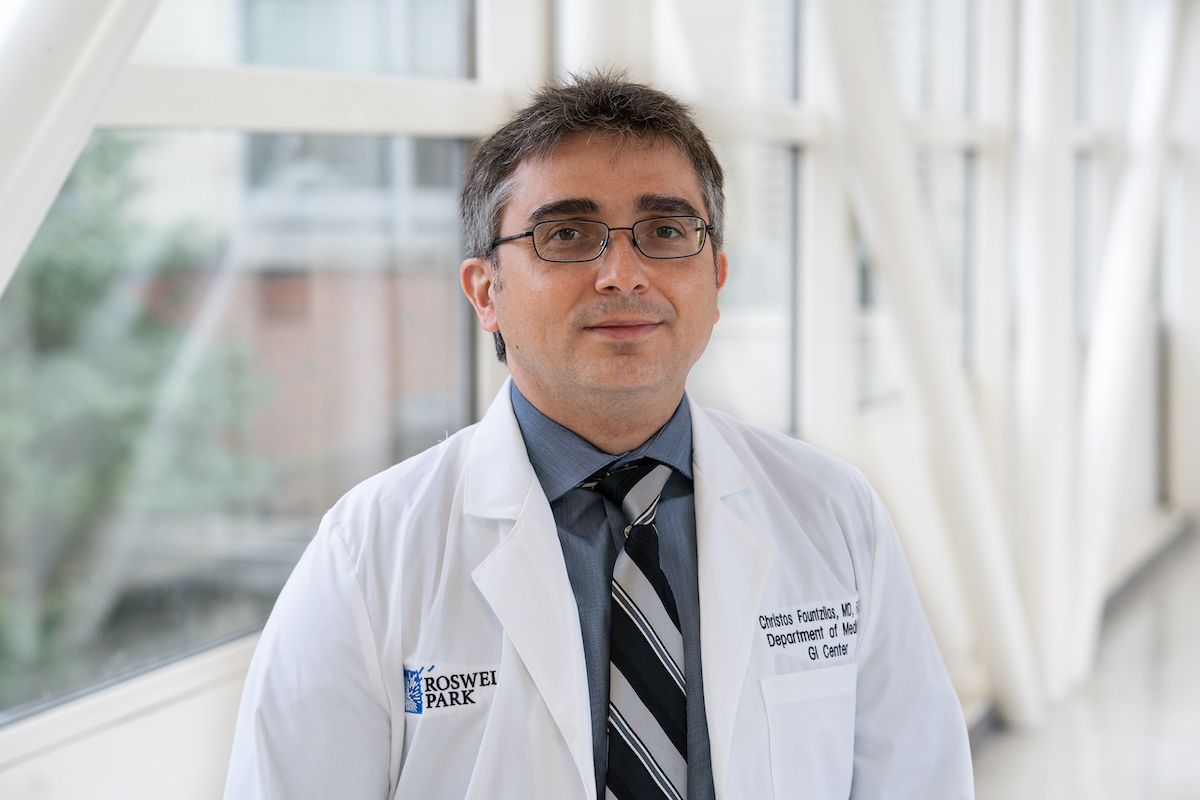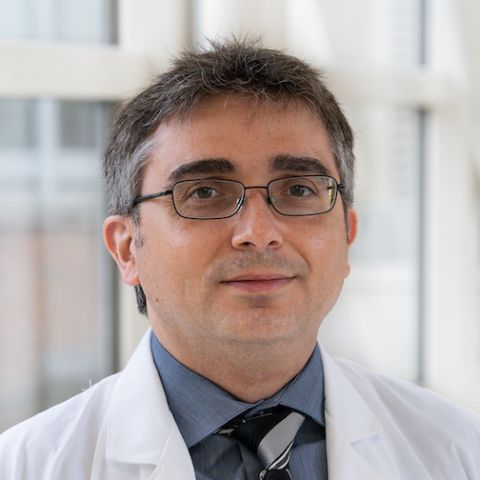April is Esophageal Cancer Awareness Month. Here, Christos Fountzilas, MD, Associate Professor of Oncology and board-certified gastrointestinal medical oncologist at Roswell Park Comprehensive Cancer Center, answers some of the most common questions about this rare and complex type of cancer.
1. How do you get esophageal cancer?
We don’t know the exact causes of this type of cancer, but we do believe it develops because of damage to the cells of the esophagus, the tube leading from the throat to the stomach. We know this because certain lifestyle factors, such as tobacco use or frequent heartburn, tend to increase a person’s risk of getting esophageal cancer.
2. What are the symptoms of esophageal cancer?
The most common symptom is difficulty swallowing, which usually leads to significant weight loss. Chest pain or a burning sensation is also common, but this can also be caused by heartburn. In the advanced stages, patients will start to experience vomiting, hoarseness, a cough that won’t go away or black stool caused by bleeding in the esophagus.
3. Can acid reflux cause esophageal cancer?
Gastroesophageal reflux disease (GERD), or heartburn, is very common. Almost everyone experiences reflux symptoms from time to time, especially after eating a big meal, and it is not a sign of cancer.
However, about 10-15% of people with GERD will develop a condition called Barrett’s esophagus, where the tissue lining the esophagus begins to change and resemble small-bowel tissue because of repeated exposure to stomach acid. Barrett’s esophagus is considered precancerous, because it puts you at a slightly higher risk of developing esophageal cancer.
4. How long does it take for Barrett’s esophagus to develop into cancer?
Barrett’s esophagus increases your risk of developing adenocarcinoma, the most common type of esophageal cancer. But if Barrett’s esophagus does turn into cancer, it is a slow process that takes several years.
Roswell Park has a screening program for high-risk patients with GERD and Barrett’s esophagus so that we can monitor them closely for any signs of cancer. If we find any signs of cancer during these yearly or twice-yearly screenings, we can easily intervene using minimally invasive procedures.
5. How is esophageal cancer treated?
At the early stages, endoscopic resection (where a special tube called an endoscope is used to remove cancerous or other abnormal tissue from the digestive tract) and radiofrequency ablation are two highly effective and minimally invasive therapies that we offer here at Roswell Park. A simple esophagectomy may also be effective.
A combination of chemotherapy and radiation followed by surgery remains the standard treatment for esophageal cancer, but we are beginning to incorporate immunotherapy into treatment, either in addition to chemotherapy or as a way to prevent recurrence after surgery. So far, the results of these new immunotherapy approaches seem promising.
6. What can I do to lower my risk of esophageal cancer?
Living a healthy, active lifestyle is the best way to lower your risk of any type of cancer, including esophageal cancer. A diet low in sugar and saturated fat and high in whole foods, like fruits and vegetables, can avoid or even repair the damage to the esophagus caused by a poor diet. There is a strong link between obesity and esophageal cancer, so maintaining a healthy weight is also very important.
Tobacco and alcohol use, especially when combined, is the biggest risk factor for esophageal cancer. So don’t smoke or use tobacco in any form, and limit your alcohol consumption. If you currently smoke and would like help quitting, talk to your doctor or contact the New York State Smokers’ Quitline (1-866-NY-QUITS or 1-866-697-8487, which is a free and confidential service for New Yorkers who want to stop smoking.
You need a second opinion
A second opinion is the best way to ensure that your initial diagnosis is accurate, that the recommended treatment strategy is right for you, and that you have experts around you.

